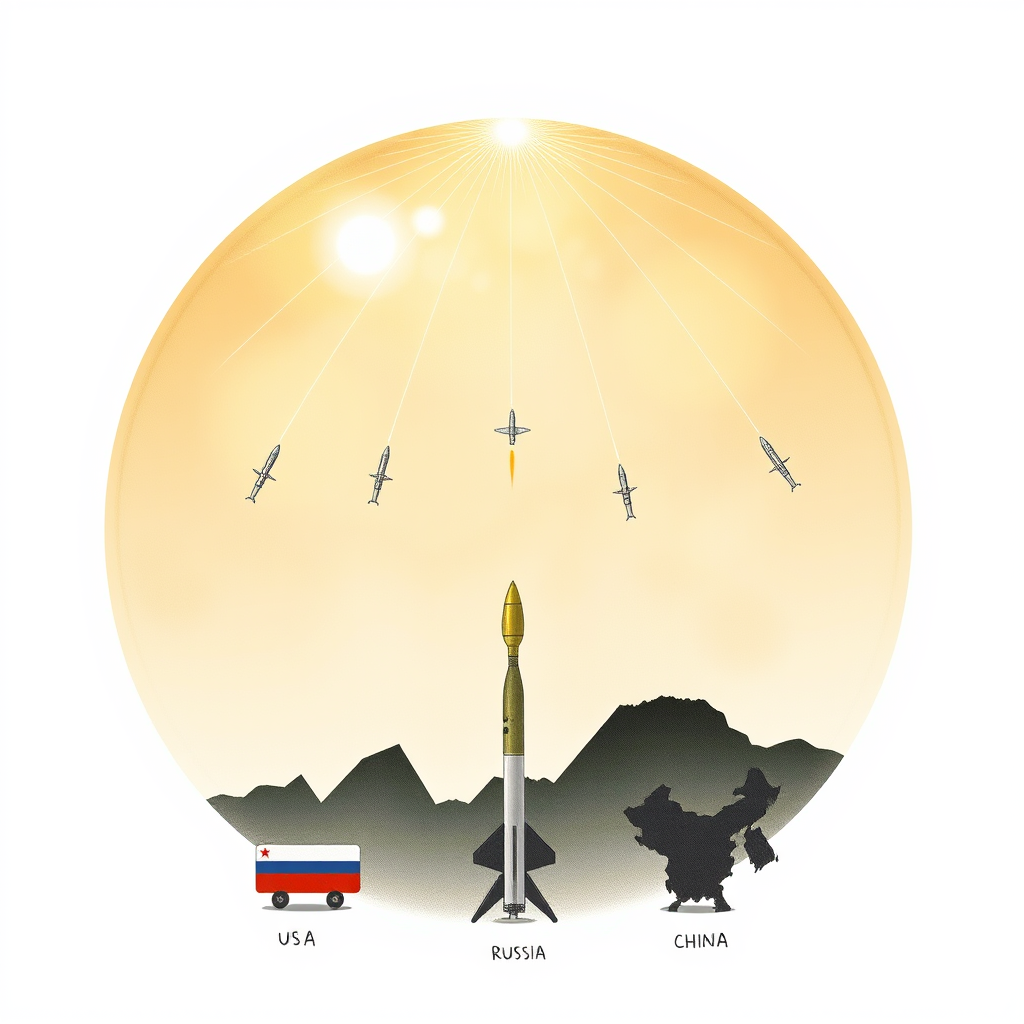Trump’s Space Shield Sparks Global Fears and Responses

Donald Trump’s proposal for a space-based missile defense system, dubbed the “Golden Dome,” has drawn swift and critical responses from nations potentially viewed as adversaries. While the former President frames the project as a protective measure for the United States, Russia, China, and North Korea perceive it as a destabilizing provocation and a potential catalyst for a new arms race, extending into the realm of space.
The “Golden Dome,” still years from realization, envisions a network of interceptors, satellites, and sensors capable of neutralizing missile threats globally. However, critics argue this pursuit of a seemingly impenetrable shield will only heighten international tensions and accelerate the weaponization of space.
North Korea’s state media immediately condemned the plan as a scheme for “outer space nuclear war” and a manifestation of American “self-righteousness” and “arrogance.” Pyongyang, already actively developing and testing ballistic missiles – including ICBMs capable of reaching the U.S. – and estimated to possess a substantial nuclear arsenal, views the “Golden Dome” as a direct threat. They accuse the U.S. of using defense as a pretext to militarize space and achieve “preemptive military superiority.”
Russia initially joined China in issuing a joint statement labeling the program “deeply destabilizing.” The statement rejected the notion of separating offensive and defensive strategic arms and signaled a commitment to counter policies that transform outer space into a “warfighting domain.” Following Trump’s detailed announcement, the Kremlin adopted a more measured tone, acknowledging the U.S.’s sovereign right to develop a missile defense system, but also asserting Russia’s capability to overcome any such defenses. Russian officials point to the nation’s expanding arsenal of hypersonic weapons and ICBMs, some of which are capable of carrying nuclear warheads, as a deterrent.
China has been the most vocal in its opposition, urging Trump to abandon the project altogether. Beijing warns that the “Golden Dome” risks turning space into a battlefield, undermining international security and arms control efforts. The Pentagon views China as a significant missile threat, noting its rapidly growing arsenal of hypersonic missiles and ICBMs, as well as its reliance on Russian-developed defense systems.
The international reaction to the “Golden Dome” underscores a fundamental dilemma in strategic defense. While proponents argue that missile defense systems enhance security by reducing vulnerability to attack, opponents contend that they provoke escalation, encourage proliferation, and ultimately diminish stability. The current situation highlights the delicate balance between national security concerns and the imperative to prevent a dangerous arms race in space. It’s a clear indication that unilateral actions, even those framed as defensive, can have far-reaching and potentially destabilizing consequences on the global stage. The pursuit of absolute security, ironically, may end up making the world less safe.